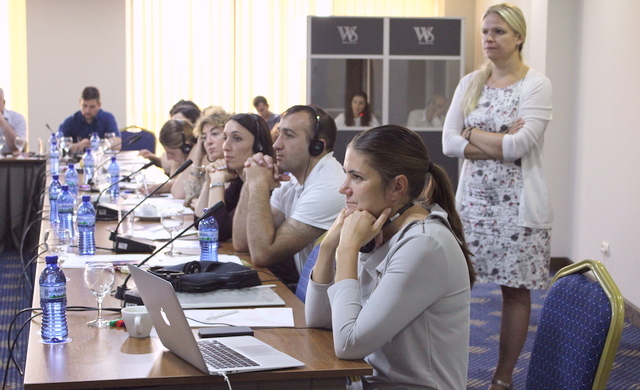On 12-14 July 2018, in the framework of the EU-funded European Neighbourhood Programme for Agriculture and Rural Development (ENPARD), a three-days workshop of Georgian Association of Local Action Groups (GALAG) took place in Batumi.
The training aimed to bring together GALAG representatives, to identify vision of GALAG, common values, goals, GALAG preliminary action plan with priority areas and management model. The training was conducted by the invited experts of European LEADER Association for Rural Development (ELARD).
The training was attended by around thirty participants, including members of Borjomi, Lagodekhi, Kazbegi, Akhalkalaki, Khulo, Keda, Tetritskaro and Dedoplistkaro LAGs, LAG Coordinators and representatives of implementing organizations in the above mentioned municipalities.
On the first day of the training experts presented ELARD analytical report and their opinion about the establishment of local groups network in Georgia, also overview about similar networks in other countries and analysis of their main features. Next steps were: proposals to establish and develop GALAG network in Georgia and practical examples from Estonia, Austria, Hungary and other countries. First training day was finished with very active group works and discussions in the circle.
Next two days of the training also were very active and informative for GALAG representatives, there were many group works which made GALAG members get to know each other well and share each other’s opinions, about activities which are urgent and important for GALAG, every group work was followed by feedbacks and recommendations by ELARD experts.
The European Neighbourhood Programme for Agriculture and Rural Development (ENPARD) has been implemented in Georgia since 2013. The programme aims at reinvigorating the agriculture and the rural sector in the country with a thorough cooperation of government, civil society, and rural community.

